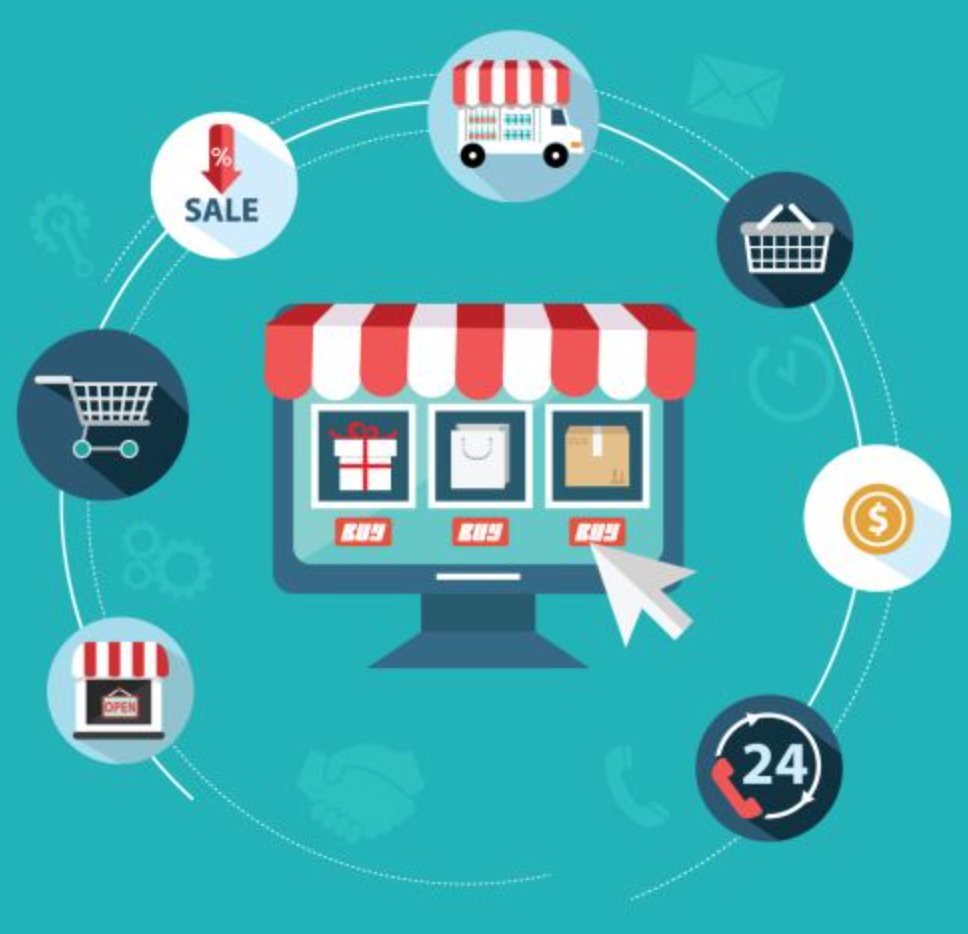Published
|Last updated
E-commerce
Learn what E-commerce is and how it evolved.
Published
|Last updated
Learn what E-commerce is and how it evolved.
![What is E-commerce - [Marketing Dictionary]](/assets/img/dictionary-background.webp)
What is E-commerce
E-commerce - short for electronic commerce, refers to the buying and selling of products or services online. It is a rapidly growing industry that has transformed the way people shop and conduct business online. E-commerce transactions can take place between businesses, between businesses and consumers, or between consumers. E-commerce platforms can be found on websites, mobile apps, and social media platforms.

Business to Consumer ecommerce business (B2C): In this type of e-commerce, businesses sell products or services directly to consumers. Examples of B2C e-commerce include online retailers such as Amazon and Walmart and online food delivery services such as Grubhub and Uber Eats.
In 1991, the National Science Foundation (NSF) lifted restrictions on the commercial use of the internet, paving the way for businesses to begin selling products online. In 1994, the first secure online sales transaction was completed by a startup called NetMarket, which sold a Sting CD to a customer in Pennsylvania.
The same year, Amazon was founded by Jeff Bezos as an online bookstore. Amazon quickly expanded its product offerings, becoming one of the largest online retailers in the world. Other early e-commerce pioneers included eBay, which was founded in 1995 as an online auction site, and PayPal, which was founded in 1998 as a payment processing platform for online stores.
In the early 2000s, online business and e-commerce began to expand rapidly as more and more consumers gained access to the internet. In 2001, the dot-com bubble burst, leading to a wave of bankruptcies and failures in the e-commerce industry. However, e-commerce continued to grow and evolve. In 2005, YouTube was founded, allowing businesses and consumers to share video content online. Social media platforms such as Facebook and Twitter also emerged, giving brands new channels to connect with consumers.
More recent developments in e-commerce include the rise of mobile commerce, or m-commerce, which allows consumers to shop and make purchases through mobile devices such as smartphones and tablets. The introduction of digital wallets such as Apple Pay and Google Wallet has also made it easier for consumers to make online purchases. In addition online retail, the growth of e-commerce has led to the rise of other industries such as online advertising and logistics.
In summary, e-commerce is a growing industry that has revolutionized the way people buy and sell products and services. Different types of e-commerce include B2C, B2B, C2C, and C2B. E-commerce offers many benefits, such as increased convenience and access to a wider range of products, to online shopping but also poses challenges such as security concerns and logistical issues. As technology continues to advance, e-commerce is likely to become an even more integral part of our daily lives.
❤️ Spread the word! ❤️
Found this guide valuable? Share it with your colleagues to help them boost their local marketing results too!
Powered by Localo 2026